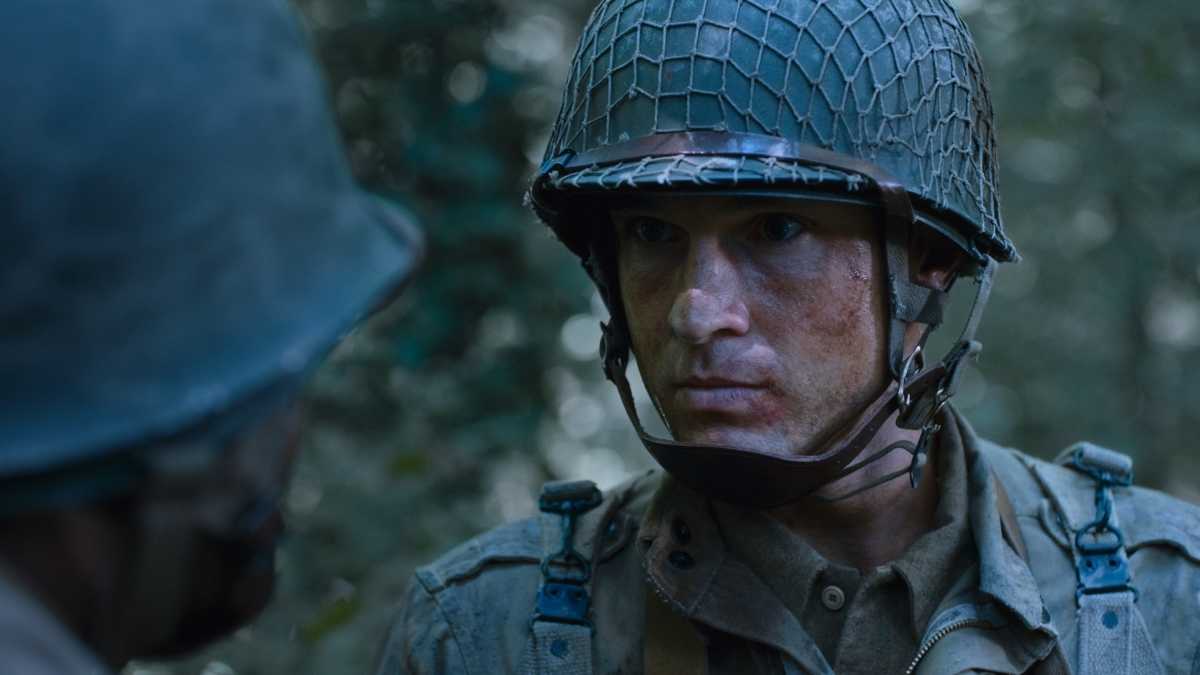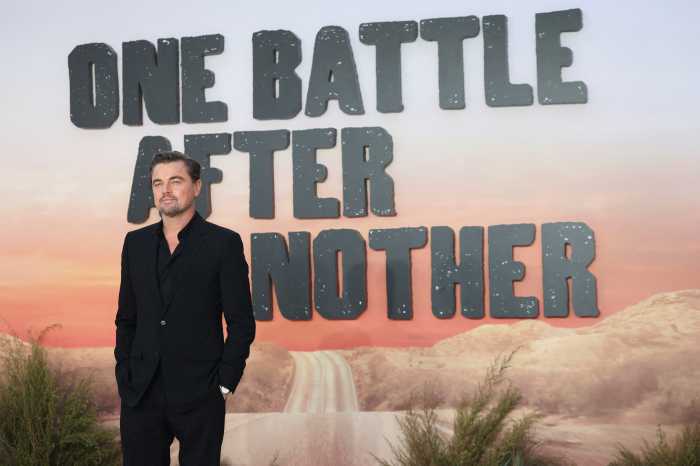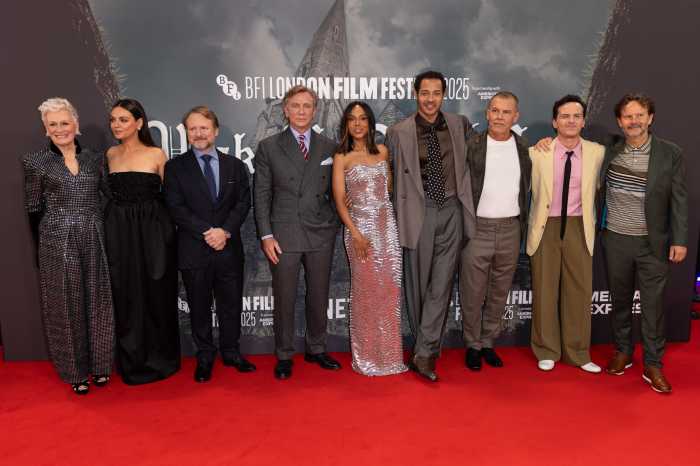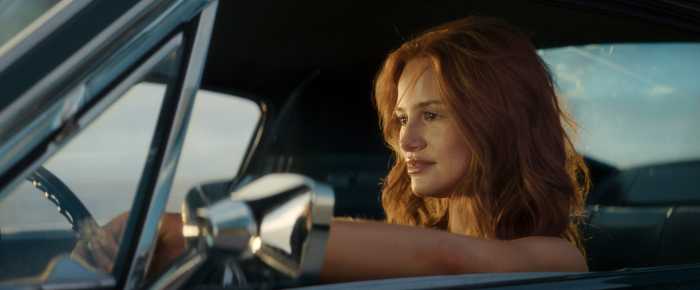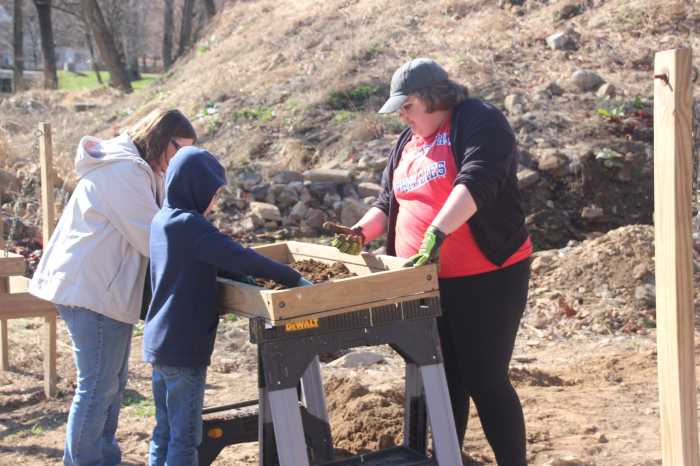In a genre of WWII films, ‘Murder Company’ starring William Moseley and Kelsey Grammer is here to tell the untold true story of a group of US soldiers that were given orders to smuggle a member of the French resistance behind enemy lines to assassinate a high-value Nazi target. For Mosely, the film hits a personal note, but he also described just how tough the filming process was for the story, which debuts this week on July 5.
To dive a little deeper into the action, stunts and camaraderie on set, Moseley sat down to chat more about ‘Murder Company.’
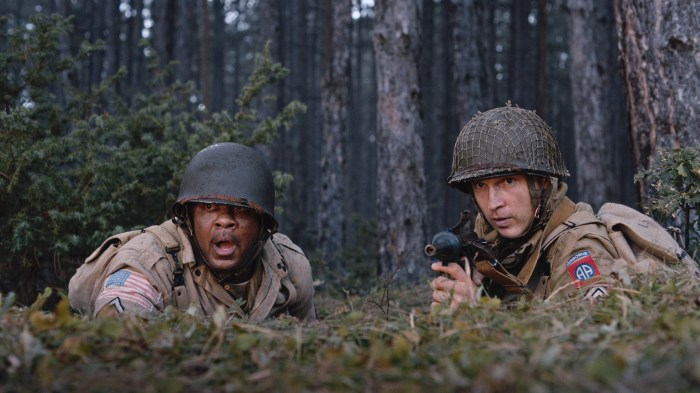
When you first heard about this role or film, what was it about ‘Murder Company’ that pulled you in?
I think right away, as soon as I got the logline [I saw] that it was a World War II film, I’ve always wanted to make a World War II film. And when I heard it was about these guys that are paratroopers, that they land, find enemy lines, and they have to go and stop a high-ranking Nazi official, it instantly drew me towards it. My grandfather was a paratrooper in World War II, so that also meant that I had a personal connection to the story.
I remember him talking about going into Germany and really just saying how hard it was and how rough it was. It was a very, very tough time and he was so young. My mom has a picture of him when he was in his uniform and he looks only about 16 or 17. These were young guys going to fight a very adult war.
It’s always interesting to me to see a film or book that covers a story that they say many people don’t know about but should—and that’s how ‘Murder Company’ is set up. When you started getting prepared for the role, did you do any research on your own?
We talked a lot about it and obviously, there’s a lot online to learn about World War II, you really could spend your whole life learning about it. I did as much research as I could, and with all of us guys, I think the most important thing we realized when we got together and became friends is that our chemistry on screen and our relationships on set and off-screen were very, very important [to the story.]
So we’d always go to dinner, we went out on the weekend, we did things together, we went to the gym together, we all watched ‘Band of Brothers’ at the same time and we were talking about it on set, we would send YouTube videos to each other about World War II. And the funny thing is about when you finish a film, it’s like you’ve gotten so close to people and then you just say goodbye. It’s over. But we always had that time together on set and that was powerful.
It’s interesting to have that fun relationship off the set but then be thrust while filming into these life-or-death situations.
Right, when you’re offset, you’re having fun, you’re relaxing, but when you are on set, it’s work. And specifically, we were filming in Bulgaria in the mountains and it was very hot. We were filming like 15 hour days, sometimes very, very long days, and it’s just important when somebody is struggling on that day, you never know if it’s going to be you. And so you just want to make sure that you support the people that are struggling.
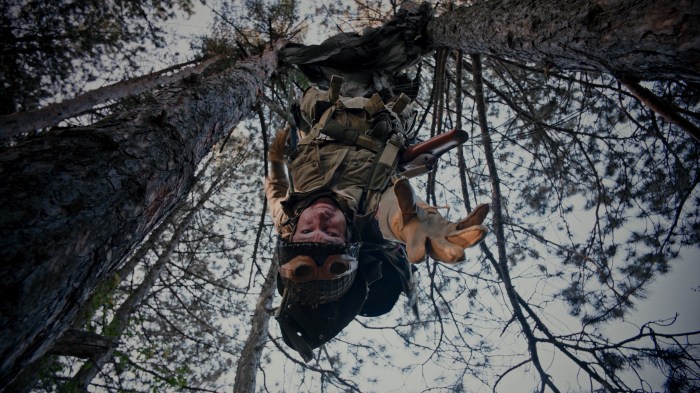
Maybe they didn’t sleep last night, or I remember Pooch (Hall) had a leg problem or something we had to help him with. There were a lot of different things that played into the chemistry itself where you just want to look out for your fellow actor and support them and support your director and support the producer and support everybody there because making a war film, it is not easy. I can tell you right now. It’s not making a romantic comedy. But it was still fun, and still awesome.
You just push, push, push, push, push. And I think that shows in the characters and I think that shows that these actors and these characters are really experiencing something tough.
I can only imagine with those very physical scenes, I mean the first shot we see of you in the film, you are hanging upside down from a tree. Does anything stand out to you from filming those moments?
Yeah, I love all action scenes to be honest with you. I grew up watching those movies, ‘Saving Private Ryan’ and ‘Apocalypse Now’ is my favorite. I really love war films, and I think if you’re going to do a war film, do it the best you can and give everything you can to the story. I know all actors say I do my own stunts, and I did as much of my own as I could—I did as much of shooting the weapons or diving on the ground, covering myself in mud, just making sure it looked rough and real and I was really there.
I do remember one day we had a scorpion that wasn’t supposed to be in the movie. There were scorpions in the woods that we were filming in and one came up on my shoulder in the middle of the tape and came across my jaw strap. I saw Pooch, the other actor looking at me, and suddenly he just slapped me in the face. We checked afterwards, and it was literally a scorpion that had just run along.
Overall, what do you hope people take away from ‘Murder Company’?
I do think it’s a very topical time for World War II films, given that it’s the 80th anniversary of D-Day. This is a time where people should know the history, remember the history, and remember what our grandparents went through. I think it’s very important for people to watch any World War II film, but specifically with this one—this is not a story that’s been told before.
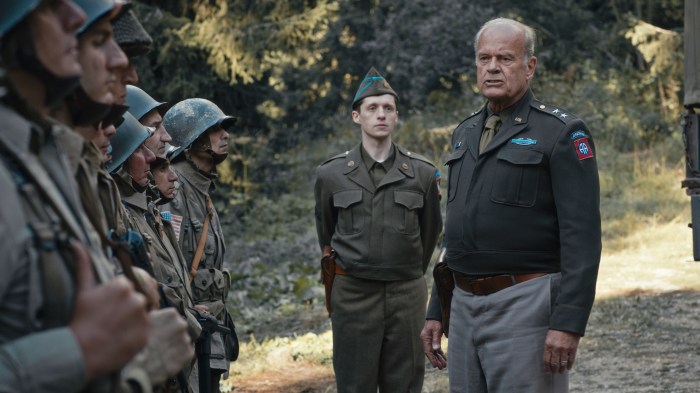
This was a real group of guys that were almost like gorilla troops that were off the radar, went behind enemy lines and did something that was fairly unknown at that time. It was a very difficult mission that I guess their commanding officer, which is played by Kelsey Grammer, didn’t assume that they would come back from. I think those stories of hope and being against all odds are wonderful to watch. They empower you as a person, and you can learn about history along the way.
‘Murder Company‘ will be released in select theaters, on digital and On Demand July 5.



